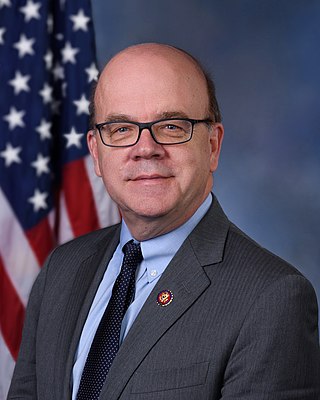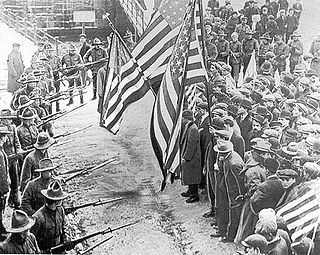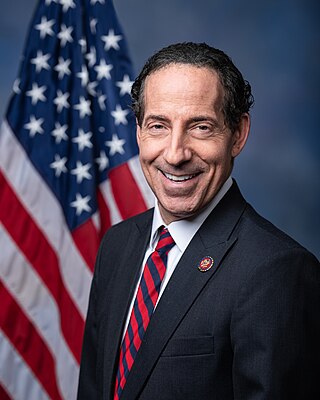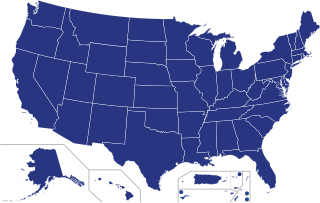
The Industrial Workers of the World (IWW), whose members are nicknamed "Wobblies", is an international labor union founded in Chicago in 1905. The nickname's origin is uncertain. Its ideology combines general unionism with industrial unionism, as it is a general union, subdivided between the various industries which employ its members. The philosophy and tactics of the IWW are described as "revolutionary industrial unionism", with ties to socialist, syndicalist, and anarchist labor movements.

Joe Hill, born Joel Emmanuel Hägglund and also known as Joseph Hillström, was a Swedish-American labor activist, songwriter, and member of the Industrial Workers of the World. A native Swedish speaker, he learned English during the early 1900s, while working various jobs from New York to San Francisco. Hill, an immigrant worker frequently facing unemployment and underemployment, became a popular songwriter and cartoonist for the union. His songs include "The Preacher and the Slave", "The Tramp", "There Is Power in a Union", "The Rebel Girl", and "Casey Jones—the Union Scab", which express the harsh and combative life of itinerant workers, and call for workers to organize their efforts to improve working conditions.

William Dudley Haywood, nicknamed "Big Bill", was an American labor organizer and founding member and leader of the Industrial Workers of the World (IWW) and a member of the executive committee of the Socialist Party of America. During the first two decades of the 20th century, Haywood was involved in several important labor battles, including the Colorado Labor Wars, the Lawrence Textile Strike, and other textile strikes in Massachusetts and New Jersey.

James Patrick McGovern is an American politician who has been a member of the United States House of Representatives since 1997, representing Massachusetts's 2nd congressional district since 2013. A Democrat, he is the ranking member of the House Rules Committee, chaired the Congressional-Executive Commission on China, and is the co-chair of the Tom Lantos Human Rights Commission. His district, numbered as the 3rd district from 1997 to 2013, stretches from Worcester to the Pioneer Valley.

The Lawrence Textile Strike, also known as the Bread and Roses Strike, was a strike of immigrant workers in Lawrence, Massachusetts, in 1912 led by the Industrial Workers of the World (IWW). Prompted by a two-hour pay cut corresponding to a new law shortening the workweek for women, the strike spread rapidly through the town, growing to more than twenty thousand workers and involving nearly every mill in Lawrence. On January 1, 1912, the Massachusetts government enforced a law that cut mill workers' hours in a single work week from 56 hours, to 54 hours. Ten days later, they found out that pay had been reduced along with the cut in hours.
A useful idiot or useful fool is a pejorative description of a person, suggesting that the person thinks they are fighting for a cause without fully comprehending the consequences of their actions, and who does not realize they are being cynically manipulated by the cause's leaders or by other political players. The term was often used during the Cold War to describe non-communists regarded as susceptible to communist propaganda and psychological manipulation. A number of authors attribute this phrase to Vladimir Lenin, but this attribution is not supported by any evidence. Similar terms exist in other languages.

The Transgender Day of Remembrance (TDoR), also known as the International Transgender Day of Remembrance, has been observed annually from its inception on November 20 to memorialize those who have been murdered as a result of transphobia. The day was founded to draw attention to the continued violence directed toward transgender people.

Elizabeth Gurley Flynn was an American labor leader, activist, and feminist who played a leading role in the Industrial Workers of the World (IWW). Flynn was a founding member of the American Civil Liberties Union and a visible proponent of women's rights, birth control, and women's suffrage. She joined the Communist Party USA in 1936 and late in life, in 1961, became its chairwoman. She died during a visit to the Soviet Union, where she was accorded a state funeral with processions in Red Square attended by over 25,000 people.
"Prouder, Stronger, Better", commonly referred to by the name "Morning in America", is a 1984 political campaign television commercial, known for its opening line, "It's morning again in America." The ad was part of that year's presidential campaign of Republican Party candidate Ronald Reagan. It featured a montage of images of Americans going to work, and a calm, optimistic narration that suggested that the improvements to the U.S. economy since the 1980 election were due to Reagan's policies. It also asked voters why they would want to return to the pre-Reagan policies of Democrats.

Jamin Ben "Jamie" Raskin is an American attorney, law professor, and politician serving as the U.S. representative for Maryland's 8th congressional district since 2017. A member of the Democratic Party, he served in the Maryland State Senate from 2007 to 2016. The district previously included portions of Montgomery County, a suburban county northwest of Washington, D.C., and extended through rural Frederick County to the Pennsylvania border. Since redistricting in 2022, Raskin's district now encompasses only part of Montgomery County.

Seth Wilbur Moulton is an American politician who is the U.S. representative for Massachusetts's 6th congressional district since 2015. A former Marine Corps officer, he is a member of the Democratic Party.
The political positions of Donald Trump, the 45th president of the United States, have frequently changed. Trump has been primarily called a protectionist on trade. He has also been called and calls himself a populist, semi-isolationist, nationalist and other political categories.

"Make America Great Again" is an American political slogan and movement most recently popularized by Donald Trump during his successful 2016 presidential campaign. "MAGA" is also used to refer to Trump's political base, or to an individual or group of individuals from within that base. The slogan became a pop culture phenomenon, seeing widespread use and spawning numerous variants in the arts, entertainment and politics, being used by both supporters and opponents of Trump's presidency. Originally used by Ronald Reagan as a campaign slogan in his 1980 presidential campaign, it has since been described as a loaded phrase. Multiple scholars, journalists, and commentators have called the slogan racist, regarding it as dog-whistle politics and coded language.
Donald Trump, the president of the United States from 2017 to 2021, has a history of speech and actions that have been viewed by scholars and the public as racist or sympathetic to White supremacy. Journalists, friends, family, and former employees have accused him of fueling racism in the United States. Trump has repeatedly denied accusations of racism.
"Basket of deplorables" is a phrase from a 2016 US presidential election campaign speech delivered by Democratic nominee Hillary Clinton on September 9, 2016, at a campaign fundraising event. She used the phrase to describe "half" of the supporters of her opponent, Republican nominee Donald Trump, saying, "They're racist, sexist, homophobic, xenophobic, Islamophobic". The next day, she expressed regret for "saying half", while insisting that Trump had deplorably amplified "hateful views and voices".

Presidential primaries and caucuses of the Republican Party took place in many U.S. states, the District of Columbia, and five U.S. territories from February 3 to August 11, 2020, to elect most of the 2,550 delegates to send to the Republican National Convention. Delegates to the national convention in other states were elected by the respective state party organizations. The delegates to the national convention voted on the first ballot to select Donald Trump as the Republican Party's nominee for president of the United States in the 2020 election, and selected Mike Pence as the vice-presidential nominee.

The Unite the Right rally was a white supremacist rally that took place in Charlottesville, Virginia, from August 11 to 12, 2017. Marchers included members of the alt-right, neo-Confederates, neo-fascists, white nationalists, neo-Nazis, Klansmen, and far-right militias. Some groups chanted racist and antisemitic slogans and carried weapons, Nazi and neo-Nazi symbols, the Valknut, Confederate battle flags, Deus vult crosses, flags, and other symbols of various past and present antisemitic and anti-Islamic groups. The organizers' stated goals included the unification of the American white nationalist movement and opposing the proposed removal of the statue of General Robert E. Lee from Charlottesville's former Lee Park. The rally sparked a national debate over Confederate iconography, racial violence, and white supremacy. The event had hundreds of participants.

Former U.S. representative Joe Walsh's campaign for President of the United States in the 2020 election began on August 25, 2019, when he announced his candidacy during an interview on ABC's show This Week, concurrently with the release of a video and a tweet. Walsh was challenging incumbent Donald Trump for the Republican nomination, along with former Governor of Massachusetts Bill Weld. Walsh had been a strong supporter of Trump's during the 2016 election but had gradually become disenchanted with the President, describing him as "morally unfit". In view of Trump's high popularity among Republicans and Walsh's own history of controversial statements, Walsh was considered a long-shot candidate for the nomination. He announced the suspension of his campaign on February 7, 2020, after poor results in the Iowa caucuses.













